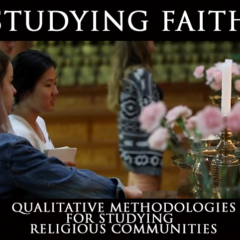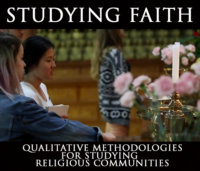Interviews are excellent tools to understand the meaning and significance of the ways in which individuals participate in various religious communities. Interviews are the face-to-face meetings you will arrange with participants of a particular religious group you are studying. They can also give you a window on how they practice their spirituality. Remember, interviews are occasions for you to learn something, not for you to teach or tell others what you think. Consider your interviewee as someone who is teaching you about the inner workings of their religious group or spiritual community.
Interviews generally can take a structured or semi-structured format.
In a semi-structured interview, you use an interview guide with concrete questions and ideas you want to learn from the interview, but you are using the guide in a way that enables the interviewee to take the discussion in to new areas or conversations that were not on your original list.
In a structured interview, you use an interview guide and ask the same question of everyone, sticking to the sequence of questions in the interview schedule.
Keep in mind that the moment you step into your field site and begin conversations with members of the group, you are already collecting data. These conversations may not be explicitly recognized as an interview, or even recorded, but these encounters help build rapport between you and the group and give you insights that you can use in your research. Consider them opportunities to uncover new topics of interest that you may have so far overlooked, and they will give information that could stimulate further questions when you do more formal interviews.
Nalika Gajaweera was a senior research analyst with the USC Center for Religion and Civic Culture through 2023.
Andrew Johnson is a contributing fellow with the USC Center for Religion and Civic Culture.

